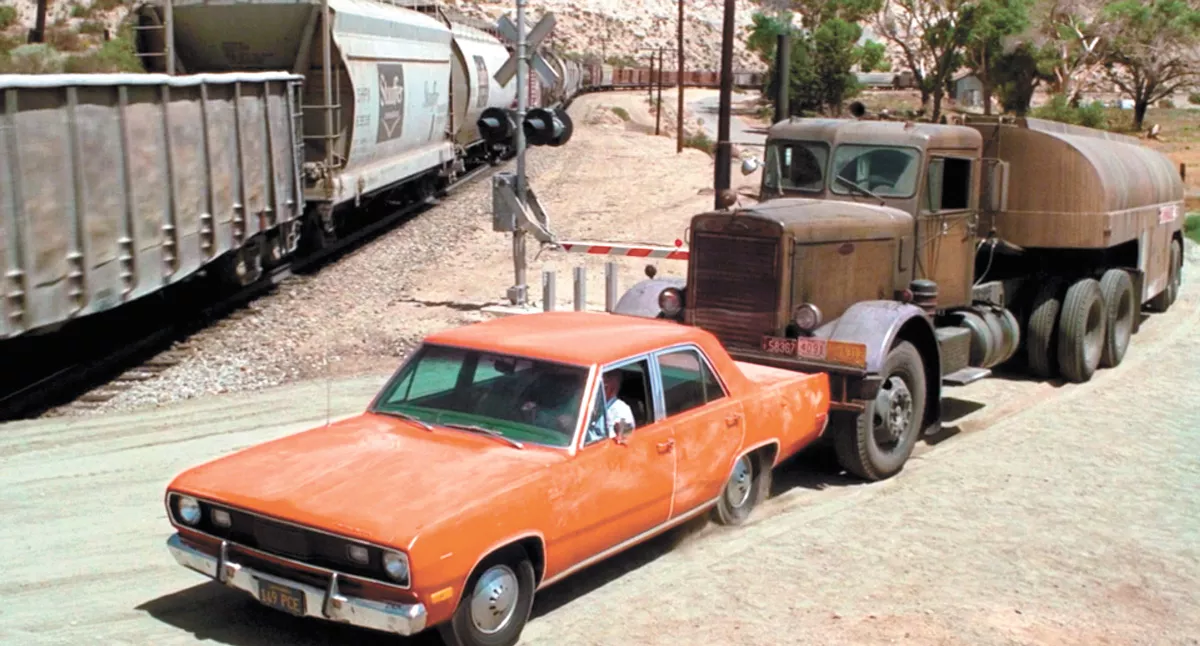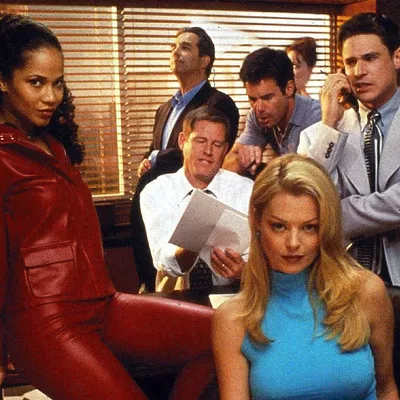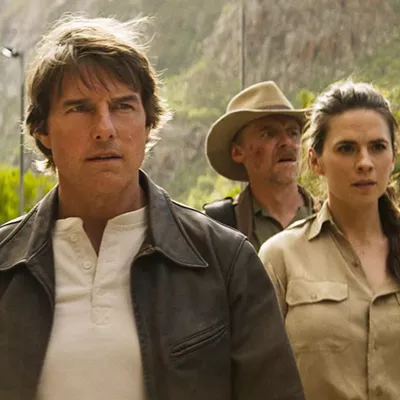For so long, the demarcation between films and TV shows was the big screen itself. If a movie played in theaters at some point in its existence, then it was a capital-F Film.
It's kind of a silly distinction, but it has existed as long as television has been an alternative medium for broadcasting feature-length stories. You could have two movies of the same length, produced on the same budget and with the same star wattage — but one premieres on cable, and it's given the distinction of "TV movie." That distinction has an inherent derisiveness about it, as if a TV movie will always be lesser than a big screen movie, even if it's good.
But now that in-home streaming is the de facto viewing means for just about everybody, including for new films by some of the greatest living filmmakers, what does it mean to be a "TV movie," anyway?
This age-old conundrum has been reconjured by the recent release of Small Axe, Steve McQueen's five-film anthology that tells several stories about West Indian immigrants in 1960s and '70s Britain, and which was released in weekly installments on Amazon Prime. It's showing up on year-end best-of lists by both film and TV critics, and while some of them have broken the collection down into individual chapters, others have chosen to consider it as an epic whole.
Small Axe is the most explicit representation of the line-blurring that's happening within and between visual mediums. McQueen himself has pushed back against the idea that it's a TV miniseries. These are five distinct films under the same thematic umbrella, he says. But almost in defiance of the creator's own designation, Amazon has categorized Small Axe as TV, and will be submitting Small Axe for consideration at the Emmys.
This happened earlier in the year with terrific black comedy Bad Education, a 108-minute film starring Hugh Jackman as a corrupt high school principal that played the film festival circuit before being acquired by HBO. Because it premiered on a cable network, it was considered a television film and even won an Emmy. Had it premiered instead on Netflix, would it have earned the same designation and shown up on top 10 film lists?
HBO has long been espousing the cinematic possibilities of cable, spending Hollywood-level budgets on adult-themed feature films that just so happened to debut in folks' living rooms. Their film output started gaining notoriety sometime in the late '80s and early '90s, with acclaimed small-screen productions like Barbarians at the Gate, And the Band Played On and If These Walls Could Talk, all of which would likely have garnered Oscars recognition had they opened in cinemas.
But the awkward dance between cinema and television began decades earlier, and it was arbitrary even then. Consider Steven Spielberg's 1971 feature debut Duel, generally considered one of the greatest made-for-television movies ever. If you were to rent it now (and you should), there wouldn't be much to signal that it first premiered on ABC. The movie was so well received, in fact, that Spielberg shot additional scenes to flesh out the running time so it could be released in theaters in most other parts of the world. In America, Duel was a TV movie, but in Europe, it was a proper cinematic experience. In both cases, it's a gripping film.
That, of course, was back when TV was generally considered an inferior medium to film, despite the '70s producing cinema-worthy appointment viewing with Roots and Jesus of Nazareth. Decades later one could argue that contemporary TV's most esteemed series have a tighter grasp on stylistic experimentation, narrative pacing and visual texture than most mainstream movies.
Maybe these distinctions between TV and film don't matter anymore, especially when most of us are watching blockbusters like Soul and Wonder Woman 1984 from our living room couches. The barrier separating TV and film has slowly been dissolving, and in 2020, the wall fell. The pessimistic side of me wonders if this represents a slippery slope: Could the definition of "cinema" become so elastic that it'll eventually include TikToks and YouTube videos? Will film critics be expected to brush up on TV alongside movies, and vice versa? Does any of it even matter?
Feature films are, by their very nature, self-contained entities, allowing us to experience other peoples' lives and adventures in a matter of hours. (There are exceptions to this, of course, but go with me here.) That sort of storytelling is, in some ways, a different artform than making a TV series, where you can explore a complex universe over the course of several years. The idea that a multi-season TV show is just "one long movie" seems preposterous to me.
And yet here we have Small Axe, which refuses to be boxed in by medium or genre. It's compelling television and compelling cinema at the same time, and it could represent a significant turning point in the great film vs. TV wars: Either it'll change the way we consider the restrictive parameters of what a movie is supposed to be, or we'll just go on making the same specious argument. ♦
Other notable TV projects that blurred the lines between mediums
Brian's Song (1971)Alongside Spielberg's Duel, 1971's other TV movie classic is the tragic athlete bromance Brian's Song. Premiering on ABC shortly after Thanksgiving, it broke ratings records, later got a limited theatrical release and is regularly named as one of the greatest sports movies.
Berlin Alexanderplatz (1980)
Originally broadcast on West German TV, Rainer Werner Fassbinder's 15-hour epic about Berlin in the 1920s gained a cult following in the U.S. after it was screened in theaters in installments. It was given the box set treatment by the Criterion Collection.
Dekalog (1989)
A 10-part TV miniseries from Polish filmmaker Krzysztof Kieslowski, with each episode representing a different biblical commandment, has since been recognized by many critics, including Roger Ebert, as one of the greatest films ever made.
O.J.: Made in America (2016)
Ezra Edelman's nearly eight-hour documentary about the rise and fall of O.J. Simpson had a limited theatrical release and ran in weekly installments on ESPN. It became one of the only films to ever win both Emmys and an Oscar, with the Academy later changing eligibility rules to prevent TV productions from competing.
Twin Peaks: The Return (2017)
Is a season of television just one long movie? That was one of many conversations surrounding the 18-episode reboot of David Lynch's series: Lynch himself pushed the narrative, and the entire season was named the best film of the year by European film magazines Sight & Sound and Cahiers du Cinema.





























